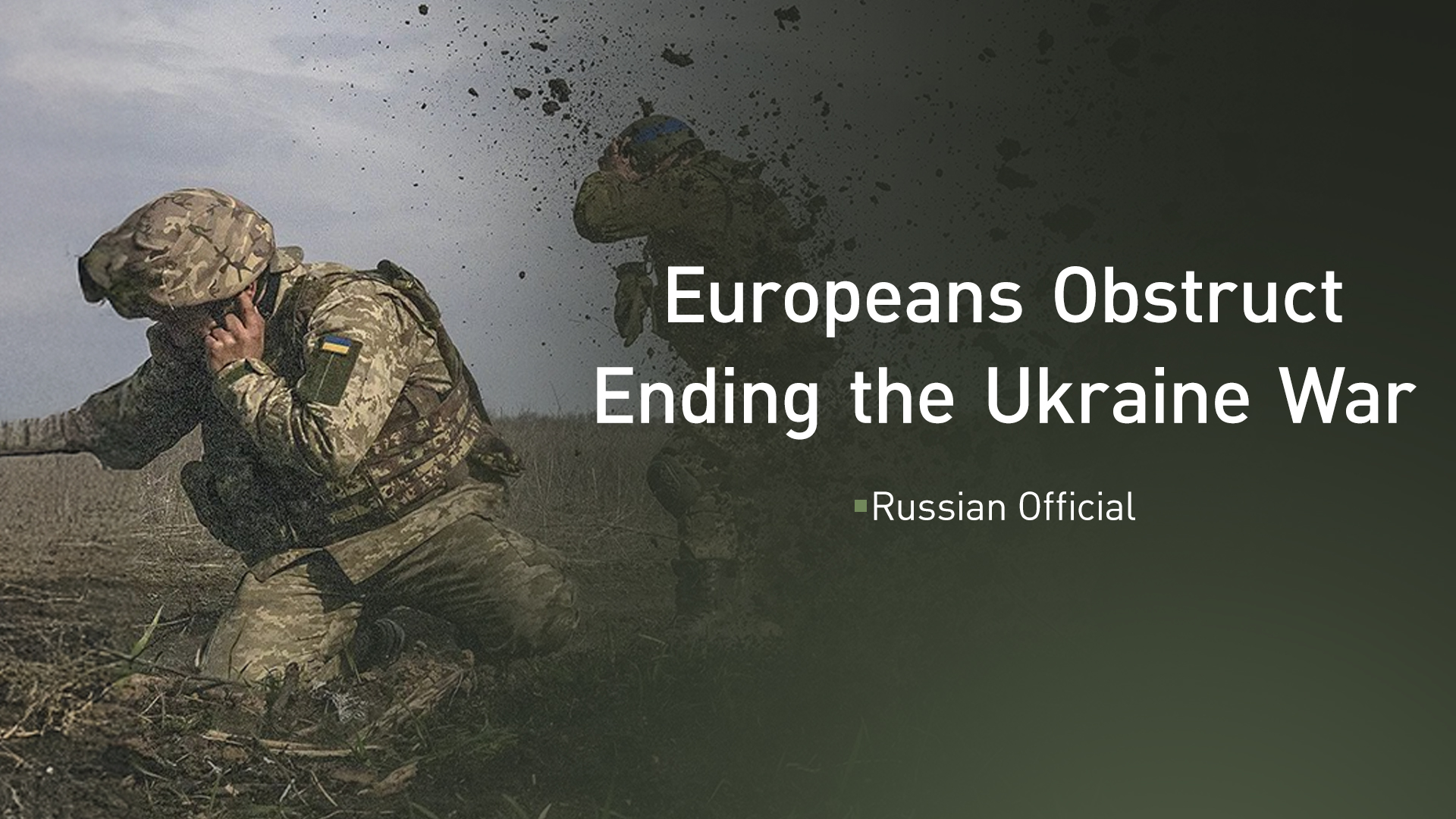Russia Blames Zelensky and European Nations for Stalling Ukraine Peace Efforts
A top Russian official told Kurdistan24 that Ukrainian President Zelensky and European nations are key obstacles to ending the Ukraine war. He accused them of sabotaging peace talks and questioned Zelensky's legitimacy, dimming hopes for a summit despite recent U.S.-Russia talks.

ERBIL (Kurdistan24) – A senior Russian official has squarely blamed Ukrainian President Volodymyr Zelensky and European countries for obstructing a potential high-level summit aimed at ending the war in Ukraine, asserting that powerful actors both inside and outside of Europe are actively working to sabotage any progress toward peace. The pointed accusation comes in the wake of a recent U.S.-Russia summit in Alaska that generated cautious optimism, yet the fundamental disagreements and deep-seated mistrust between Moscow and Kyiv continue to present formidable barriers to a negotiated settlement.
Andrey Klimov, who heads the Committee for the Protection of State Sovereignty and Prevention of Interference in Internal Affairs in Russia's Federation Council, offered a stark assessment of the diplomatic landscape in an interview with Kurdistan24.
"The factors that aren't an obstacle to holding a trilateral meeting are fewer than the barriers being created for it," Klimov stated. He argued that the desire to see such a meeting fail is widespread, pointing fingers directly at the Ukrainian leader and key Western allies.
"Those who wish for this meeting to fail are not few; Zelensky himself does not need it, unfriendly countries like Britain on the European continent are concerned by such a meeting, and at the same time, there are adversaries outside of Europe as well," he said.
Klimov elaborated on the alleged mechanisms of obstruction, suggesting that a combination of "military theater and media propaganda" is being deployed to prevent diplomatic breakthroughs.
He claimed that "behind the scenes, there are many parties working with various methods to sabotage such a meeting," and warned that these actors are "prepared to resort to bloody acts and deceit to paralyze positive steps towards peace."
Beyond these external pressures, the Russian official raised a significant procedural and political hurdle from Moscow's perspective: the question of President Zelensky's legitimacy.
"Organizing such a meeting requires preparation. Furthermore, we have consistently questioned his [Zelensky's] presidential legitimacy, because we believe his term has expired and his authority has ended with it," Klimov explained.
He stated that for Russia to engage in a binding agreement, there would need to be a guarantee that Zelensky’s signature would be honored in the future. "This guarantee could be provided by a third country, for example, the United States, or through an official document from the Ukrainian parliament, as they have more legitimacy," he suggested.
These remarks reflect a consistent theme from Moscow, where top diplomats have repeatedly framed Ukraine and its Western partners as the primary impediments to peace.
As previously reported by Kurdistan24, Russian Foreign Minister Sergey Lavrov on August 21 accused Kyiv of lacking genuine interest in a settlement and charged European leaders with actively working to "derail" progress. Lavrov has also publicly questioned Zelensky's legitimacy following the postponement of Ukrainian elections due to the war, insisting this issue "must be resolved before Russia can sign any document with Kyiv."
The current diplomatic stalemate persists despite a recent high-profile push for peace led by the United States. On August 15, 2025, U.S. President Donald Trump met with Russian President Vladimir Putin in Alaska to discuss a potential ceasefire and other critical issues. The summit concluded on a publicly positive note, with Putin describing the discussions as having been "conducted in a constructive and positive atmosphere."
President Trump, speaking to Fox News, went so far as to give the meeting a "10 out of 10," and indicated that he and Putin had come "very close to reaching an agreement" on issues including NATO, security, and territory.
Following this meeting, Trump held a phone call with European leaders and President Zelensky to brief them on the discussions.
The European leaders subsequently issued a joint statement expressing support for a trilateral summit involving Zelensky, Putin, and Trump, signaling a potential diplomatic opening. However, the deep chasm between the warring parties' fundamental positions remains.
President Putin, speaking at the Shanghai Cooperation Organization summit on September 1, reiterated Russia’s long-standing justification for the war, blaming the West's "constant attempts" to draw Ukraine into the NATO military alliance. As reported by Russia's TASS news agency, Putin framed this eastward expansion as a "direct threat to Russia's security," and cited the 2014 change of government in Kyiv, which he termed a "coup d’etat," as the origins of the crisis.
This narrative directly clashes with Ukraine's non-negotiable demands.
President Zelensky has made robust, NATO-style collective security guarantees the cornerstone of any potential peace deal.
On August 22, as reported by Kurdistan24, he accused Moscow of actively blocking a potential summit, stating, "The Russians are doing everything to block my meeting with Putin."
This cycle of accusation and counter-accusation, set against the backdrop of unrelenting battlefield violence, underscores the immense difficulty of finding a diplomatic path forward.
While the U.S. continues to act as a facilitator, the core visions for regional security held by Moscow and Kyiv appear irreconcilable, leaving the prospects for a lasting and just peace dangerously elusive as the devastating war grinds on.
Kurdistan24's correspondent from Russia, Khashavi Mohammed, contributed to this report.
